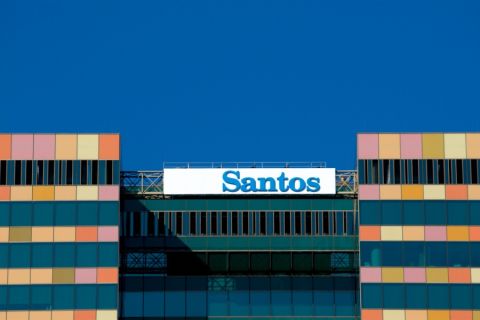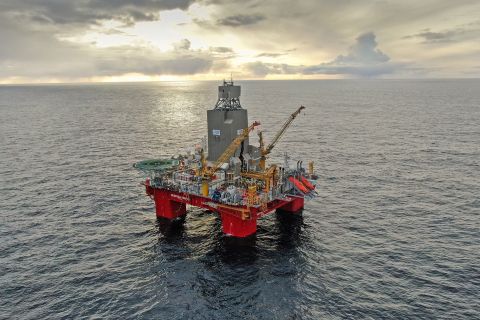Oil and gas producers plan to increase their worldwide exploration and production expenditures by more than they anticipated at the beginning of the year, Lehman Brothers Inc. finds in a midyear update of its annual E&P survey. "The 326 companies we surveyed are planning on an 18.2% increase, versus a 10.2% rise budgeted in December," James D. Crandell, who follows oil services and drilling for the New York investment banker, says in the new report. The percentage gain is on top of 2000 plans, not 1999 budgets. "Among the companies that were included in our December 1999 and May 2000 surveys, global spending actually came in slightly above what was estimated in December 1999 to have been spent during 1999." Nearly $6 billion has been added to 2000 worldwide exploration budgets since December. The survey's respondents plan to increase U.S. E&P spending 17.6%, up from year-end 1999 plans of a 15.9% increase. The increase is driven almost entirely by independents. "In our [midyear] survey, 227 independents indicated E&P spending growth in 2000 of 26.1% versus 22.9% budgeted for the year in December," Crandell said. Some 40% of the independents have increased their U.S. E&P budgets, while about 23% plan on spending less than what they budgeted or anticipated in December. "Higher natural gas prices and increased cash flow are the main drivers behind this." Larger independents to make the most significant upward revisions in the capex budgets include Anadarko Petroleum, Apache Corp., BHP Petroleum, HS Resources, McMoRan Exploration, MDU Resources Group, Mitchell Energy & Development, Santa Fe Snyder, Stone Energy and Pure Resources (formerly Titan Exploration). Those significantly reducing U.S. E&P spending for this year include Barrett Resources, Belco Oil & Gas, Burlington Resources, Coastal Corp., Forcenergy Inc., Houston Exploration, Kerr-McGee Corp., Mariner Energy and Williams Production. Major oil companies' midyear plans for U.S. E&P spending in 2000 were mostly unchanged, at 8.8% more than in 1999; in December, they had anticipated spending 8.4% more this year. Making meaningful increases in first-half 2000 are Amerada Hess, Conoco Inc., Occidental Petroleum and TotalFina Elf. Paring their domestic spending plans for 2000, since year-end 1999, are ENI SpA, Royal Dutch/Shell and Texaco Inc. Meanwhile, Canadian capex budget increases are "nothing short of staggering," Crandell said. Of the 85 companies he contacted, 44.7% budgeted higher expenditures for 2000 than for 1999. "Compared with December, 41% of them have increased their estimated spending in 2000 by more than 10%, while 20% have reduced it by more than 10%. The remaining 39% have kept it within 10% of what was originally estimated." Talisman Energy led the group with a huge increase, followed by Anderson Exploration, Gulf Canada Resources, Murphy Oil, Pan Canadian Petroleum and Shell Canada. Like their U.S. counterparts, producers above the border raised their 2000 E&P budgets in response to higher gas prices and increased cash flow, Crandell said. Foreign upstream budgets were an area of surprise, he added. "The 14.9% gain indicated by the 99 oil and gas companies that have operations outside the U.S. and Canada was well above the 5.7% increase for 2000 estimated last December. As [elsewhere], there were more companies that increased budgets than decreased them." The larger increases were driven by some big companies which materially increased their budgets, including Texaco, Petrobras, Pemex and Repsol YPF among the multinationals and Amerada Hess, Apache, Premier Oil and Woodside Energy among large independents. The surveyed companies' preliminary estimates of 2001 capex suggest yet higher spending next year. (See chart.) And, Crandell notes that while survey participants' commodity-price assumptions for 2000 rose during the first half (to $22.04 per barrel of oil, from $19.25, and to $2.58 per thousand cubic feet of gas, from $2.38), they still trail current prices. Lehman Brothers estimates $28 oil and $3.30 gas for 2000. "This suggests a stronger second half than expected, should companies raise budgets further to reflect the higher prices," he said. -Nick Snow
Recommended Reading
Santos’ Pikka Phase 1 in Alaska to Deliver First Oil by 2026
2024-04-18 - Australia's Santos expects first oil to flow from the 80,000 bbl/d Pikka Phase 1 project in Alaska by 2026, diversifying Santos' portfolio and reducing geographic concentration risk.
Iraq to Seek Bids for Oil, Gas Contracts April 27
2024-04-18 - Iraq will auction 30 new oil and gas projects in two licensing rounds distributed across the country.
Vår Energi Hits Oil with Ringhorne North
2024-04-17 - Vår Energi’s North Sea discovery de-risks drilling prospects in the area and could be tied back to Balder area infrastructure.
Tethys Oil Releases March Production Results
2024-04-17 - Tethys Oil said the official selling price of its Oman Export Blend oil was $78.75/bbl.
Exxon Mobil Guyana Awards Two Contracts for its Whiptail Project
2024-04-16 - Exxon Mobil Guyana awarded Strohm and TechnipFMC with contracts for its Whiptail Project located offshore in Guyana’s Stabroek Block.




